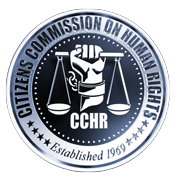ANTIPSYCHOTICS: SUDDEN DEATHS
Between 2005 and 2011, the rate of antipsychotic drug use in the U.S. military rose
Seven different countries as well as the European Union have issued a total of 55 warnings about the harmful side effects of antipsychotic drugs, including:
- 12 warnings of death/sudden death
- 11 warnings of heart problems
- 6 warnings of withdrawal symptoms
- 6 warnings of convulsions, seizures or tremors
- 5 warnings of diabetes
http://www.cchrint.org/psychiatric-drugs/antipsychoticsideeffects
The antipsychotic Seroquel, is especially implicated in cardiac arrests and sudden deaths of combat veterans. Known by soldiers as “Serokill,” it is often prescribed to treat insomnia, an indication for which it is not approved by the U.S. Food and Drug Administration. Not that another brand of antipsychotic would be preferable—a recent study in the New England Journal of Medicine reports that all drugs in this class double the risk of sudden cardiac arrest.
And when these drugs are given to large numbers of military personnel, what begins as a risk can lead to wide-scale tragedy. According to investigations by neurologist Dr. Fred Baughman, Jr., as many as 351 soldiers have died from cardiac arrest after ingesting drug cocktails containing antipsychotics and antidepressants. This phenomena is no coincidence when contrasted to a 2004 study that found only 59 non-traumatic cardiac deaths related to exercising among U.S. military recruits from 1997 to 2001.
Yet with unexplained deaths seemingly at every turn, psychiatrists continue to prescribe antipsychotics such as Seroquel in record numbers. Between 2001 and 2011, the U.S. Veterans Administration and the Defense Department spent more than $850 million on Seroquel, yet another huge profit center for the psycho-pharmaceutical industry at the expense of active-duty troops and vets.













